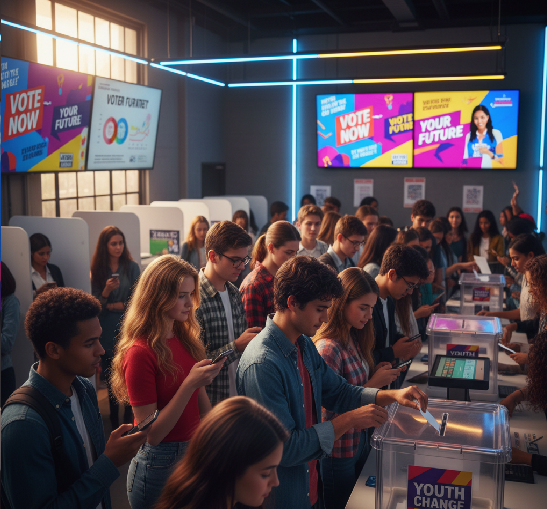For visitors exploring Jeju Island, one of the notable stops is the Jeju Yeondong room (제주연동룸), a space often associated with relaxation, leisure, and community gatherings. These venues showcase how local culture thrives through spaces where people come together, whether for conversations, entertainment, or a pause from their busy schedules. The Jeju Yeondong room reflects how tradition and modern lifestyle coexist in a setting that continues to evolve.
This would have not been possible without the impact that youth voters have brought in the country. Gen Z’s as they call it, have a collective power that can turn governments around. Their participation in national elections can bring visible change in a country’s economy.
Growing Weight of Young Voices
In many countries, young voters now represent a powerful share of the electorate, reshaping the political landscape with their priorities and values. Issues such as climate change, affordable education, healthcare access, and digital rights dominate their concerns, bringing fresh perspectives into policy discussions.
Unlike older generations who may focus more on short-term stability, younger demographics often advocate for long-term sustainability and progressive reforms.
Their growing influence pushes political leaders to adopt forward-looking policies that balance immediate needs with future challenges, highlighting the critical role of youth in shaping modern governance.
Jeju Yeondong Room and Collective Participation
Just as community spaces unite people around shared interests, elections gain momentum when younger generations mobilize through collective action. Youth voter turnout plays a decisive role in determining which policies rise to the forefront, influencing everything from environmental reform to social justice.
In recent years, grassroots movements led by young people have not only shaped public discourse but also pressured national leaders to adjust their agendas. This surge in participation underscores how youth engagement in politics is no longer optional. Instead, it is a driving force that redefines priorities and ensures emerging concerns are heard on the national stage.
How Youth Participation Shifts Campaign Strategies?

Political campaigns are rapidly evolving to capture the attention of younger demographics, leveraging digital platforms, viral memes, and social media influencers. This shift highlights not only the adaptability of modern campaigns but also the undeniable power of the youth vote in shaping election outcomes.
Candidates who ignore or dismiss the priorities of younger citizens risk alienating a voter base that is both highly vocal and capable of swinging results in closely contested races. By addressing issues such as climate action, affordable education, and digital freedom, political leaders can build stronger connections with these next generation of voters.
Building Habits of Civic Engagement
Encouraging youth participation in politics extends far beyond a single election cycle. It builds the foundation for lifelong civic engagement. When young people develop habits such as attending community debates, researching candidates, and voting consistently, they establish patterns that carry into adulthood. This active involvement does more than influence immediate election results.
It has the ability of strengthening democratic systems by holding leaders accountable and driving innovation in governance. By fostering early political engagement, societies ensure that the next generation remains invested in shaping fairer, more responsive, and sustainable policies for the future.
